
James Joseph Heckman is an American economist and Nobel laureate who serves as the Henry Schultz Distinguished Service Professor in Economics at the University of Chicago, where he is also a professor at the College, a professor at the Harris School of Public Policy, Director of the Center for the Economics of Human Development (CEHD), and Co-Director of Human Capital and Economic Opportunity (HCEO) Global Working Group. He is also a professor of law at the Law School, a senior research fellow at the American Bar Foundation, and a research associate at the NBER. He received the John Bates Clark Medal in 1983, and the Nobel Memorial Prize in Economic Sciences in 2000, which he shared with Daniel McFadden. He is known principally for his pioneering work in econometrics and microeconomics.

Gary Stanley Becker was an American economist who received the 1992 Nobel Memorial Prize in Economic Sciences. He was a professor of economics and sociology at the University of Chicago, and was a leader of the third generation of the Chicago school of economics.
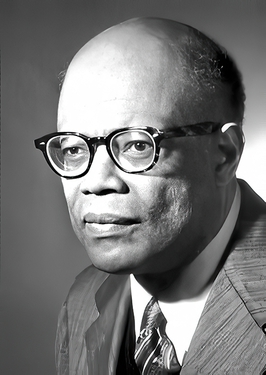
Sir William Arthur Lewis was a Saint Lucian economist and the James Madison Professor of Political Economy at Princeton University. Lewis was known for his contributions in the field of economic development. In 1979, he was awarded the Nobel Memorial Prize in Economic Sciences.

Theodore William Schultz was an American agricultural economist and chairman of the University of Chicago Department of Economics. Schultz rose to national prominence after winning the 1979 Nobel Memorial Prize in Economic Sciences.

Omicron Delta Epsilon is an international honor society in the field of economics, formed from the merger of Omicron Delta Gamma and Omicron Chi Epsilon, in 1963. Its board of trustees included well-known economists such as Robert Lucas, Paul Romer, and Robert Solow. ODE is a member of the Association of College Honor Societies; the ACHS indicates that ODE inducts approximately 4,000 collegiate members each year and has more than 100,000 living lifetime members. There are approximately 700 active ODE chapters worldwide. New members consist of undergraduate and graduate students, as well as college and university faculty; the academic achievement required to obtain membership for students can be raised by individual chapters, as well as the ability to run for office or wear honors cords during graduation. It publishes an academic journal entitled The American Economist twice each year.
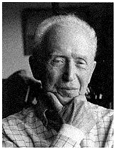
Jacob Mincer, was a father of modern labor economics. He was Joseph L. Buttenwieser Professor of Economics and Social Relations at Columbia University for most of his active life.

Richard Barry Freeman is an economist. The Herbert Ascherman Professor of Economics at Harvard University and Co-Director of the Labor and Worklife Program at Harvard Law School, Freeman is also Senior Research Fellow on Labour Markets at the Centre for Economic Performance, part of the London School of Economics, funded by the Economic and Social Research Council, the UK's public body funding social science. Freeman directs the Science and Engineering Workforce Project (SEWP) at the National Bureau of Economic Research (NBER), a network focused on the economics of science, technical, engineering, and IT labor which has received major long-term support from the Sloan Foundation.

Sir Richard William Blundell CBE FBA is a British economist and econometrician.
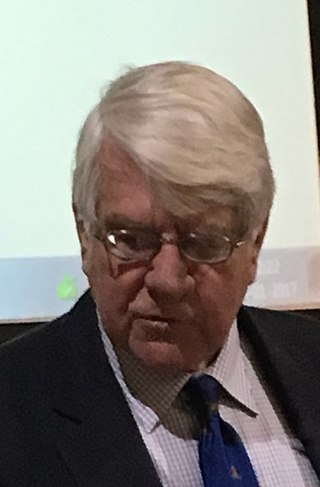
Orley Clark Ashenfelter is an American economist and the Joseph Douglas Green 1895 Professor of Economics emeritus at Princeton University. His areas of specialization include labor economics, econometrics, and law and economics. He was influential in contributing to the applied turn in economics.
Orazio Attanasio is an Italian economist and the Cowles Professor of Economics at Yale University. He was the Jeremy Bentham Chair of Economics at University College London. He graduated from the University of Bologna in 1982 and London School of Economics in 1988. He then went to teach at Stanford and was a National Fellow at Stanford's Hoover Institution and a visiting professor at the University of Chicago before arriving at University College London. Currently he is also a research director at the Institute for Fiscal Studies (IFS) in London, co-director of the Centre for the Evaluation of Development Policies at the Institute for Fiscal Studies, and a director of the ESRC Centre for the Microeconomic Analysis of Public Policy.
Daniel Selim Hamermesh is a U.S. economist, and Sue Killam Professor in the Foundations of Economics Emeritus at the University of Texas at Austin, Research Associate at the National Bureau of Economic Research, and Research Fellow at the Institute for the Study of Labor (IZA). Previously professor of economics at Royal Holloway, University of London and Michigan State University. He was formerly a Distinguished Scholar at Barnard College.
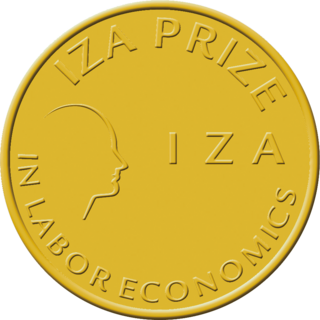
The Institute for the Study of Labor awards a prize each year for outstanding academic achievement in the field of labor economics. The IZA Prize in Labor Economics has become a highly prestigious science award in international economics, is the only international science prize awarded exclusively to labor economists and is considered the most important award in labor economics worldwide. The prize was established in 2002 and is awarded annually through a nomination process and decided upon by the IZA Prize Committee, which consists of internationally renowned labor economists. As a part of the prize, all IZA Prize Laureates contribute a volume as an overview of their most significant findings to the IZA Prize in Labor Economics Series published by Oxford University Press.
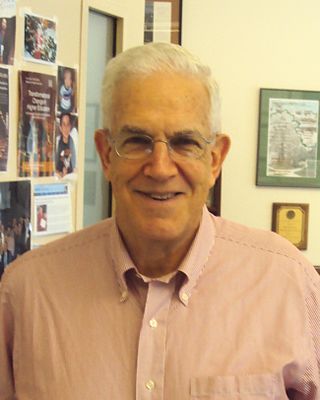
Ronald Gordon Ehrenberg is an American economist. He has primarily worked in the field of labor economics including the economics of higher education. Currently, he is Irving M. Ives Professor of Industrial and Labor Relations and Economics at Cornell University. He is also the founder-director of the Cornell Higher Education Research Institute (CHERI).

Francine Dee Blau is an American economist and professor of economics as well as Industrial and Labor Relations at Cornell University. In 2010, Blau was the first woman to receive the IZA Prize in Labor Economics for her "seminal contributions to the economic analysis of labor market inequality." She was awarded the 2017 Jacob Mincer Award by the Society of Labor Economists in recognition of lifetime of contributions to the field of labor economics.
Michael Grossman is an American health economist and economics professor emeritus at the City University of New York Graduate Center (CUNY). He directed the Health Economics Program at the National Bureau of Economic Research (NBER) from 1972 to 2020. Grossman was an early contributor to New Home Economics (NHE).
Janet Currie is a Canadian-American economist and the Henry Putnam Professor of Economics and Public Affairs at Princeton University's School of Public and International Affairs, where she is Co-Director of the Center for Health and Wellbeing. She is the 2024 President of the American Economic Association. She served as the Chair of the Department of Economics at Princeton from 2014–2018. She also served as the first female Chair of the Department of Economics at Columbia University from 2006–2009. Before Columbia, she taught at the University of California, Los Angeles and at the Massachusetts Institute of Technology. She was named one of the top 10 women in economics by the World Economic Forum in July 2015. She was recognized for her mentorship of younger economists with the Carolyn Shaw Bell Award from the American Economics Association in 2015 and also participated in the founding and evaluation of the AEA’s mentoring program for junior faculty.
The Mincer earnings function is a single-equation model that explains wage income as a function of schooling and experience. It is named after Jacob Mincer. Thomas Lemieux argues it is "one of the most widely used models in empirical economics". The equation has been examined on many datasets. Typically the logarithm of earnings is modelled as the sum of years of education and a quadratic function of "years of potential experience".
Reuben Gronau is an Israeli economist, notable for his contributions to labour economics and economic sociology, in particular the Gronau model of time allocation and home production.
Kenneth I. Wolpin is an American economist, currently the Distinguished Research Professor and Lay Family Professor of Economics at Rice University. At University of Pennsylvania, he was previously the Walter H. and Leonore Annenberg Professor of Social Sciences and Lawrence R. Klein Professor of Economics. From 2008 to 2011, he was also Editor of Wiley journal International Economic Review and also, from 1987 to 1997, co-editor of University of Wisconsin journal Journal of Human Resources.
John H. Pencavel is a British economist and academic, currently serving as Levin Professor of Economics (Emeritus) at Stanford University, having been at the institution since 1969. He is a Fellow of the Econometric Society (1993), Fellow of University College London (2001), Fellow of the Society of Labor Economists (2004), and Distinguished Fellow of the American Economic Association.























